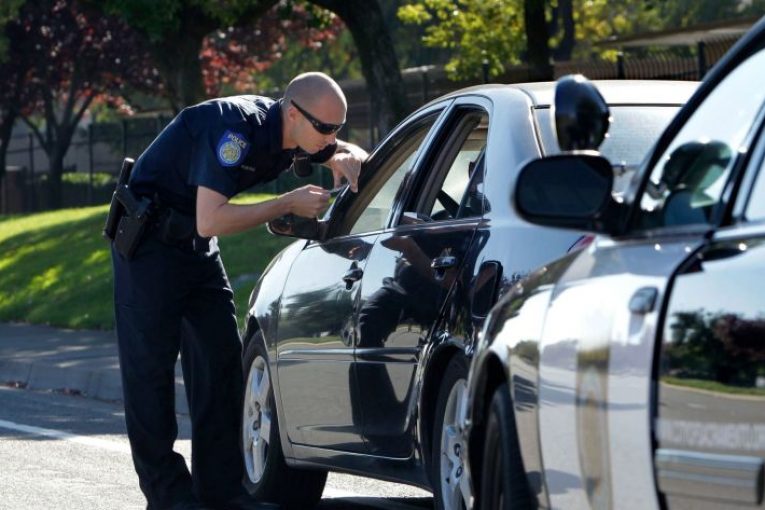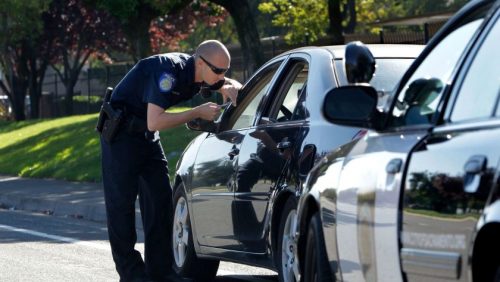

By Bryan Miller and Kaylynn Chang
NEW YORK, NY – In a recent webinar hosted by the Institute for Innovation in Prosecution this past week, national leaders shared how they have been working with community stakeholders to minimize non-public safety traffic—pretext—stops.
The IIP discussed the topic of “non-public safety traffic stops,” and the recent Supreme Court ruling that decided to reduce pretext stops in efforts to mitigate disparities in policing and punishment.
Statistics noted by Webinar participants indicate traffic enforcement laws disproportionately affect Black drivers, who are often stopped for non-safety violations, and that Black and Latino drivers are more likely to be detained and searched.
To address this, some law enforcement agencies and prosecutors’ offices have introduced policies to reduce or eliminate these pretextual stops without compromising public safety.
Discussing “the harms of pretext stops,” panelists in the webinar included Ramsey County Attorney John Choi; Mike Lee, Executive Director of ACLU Pennsylvania; Max Carter-Oberstone, Vice President of the San Francisco Police Commission; and Stephen Rushin, Professor of Law at Loyola University Chicago School of Law.
The IIP also noted that the Webinar was moderated by Rachel Marshall, the IIP executive director. Together, they spoke on the “recent approaches to reduce or stop the use of pretextual stops, and how police and prosecutors can collaborate to create a more equitable and impactful justice system.”
During the Webinar, Choi “urged prosecutors to tackle the issue of ending pretext stops head-on as part of prosecutors’ responsibility to remedy racial injustices and advance justice for all communities,” according to the IIP.
Choi, during the webinar, stated that for too long “Black and brown families” have had to adapt to the way that they are being policed. He added the U.S. should not have a justice system in which the changes are coming from “families in our communities.” Instead, County Attorney Choi argues changes should be coming from the systems in the U.S.
Choi ends his remarks arguing this way of policing has done a greater disservice to justice and as long as it continues there will be repeated patterns of injustices in the country.
While discussing what the IIP called “the misunderstood relationship between public safety and traffic stops” Lee stated there must be a “buy in from the bottom that the root cause for the public safety… is the traffic stop and not the reason for the traffic stop.”
According to the IIP, Lee added they need to identify the socioeconomic factors that are “so closely connected to things like police interactions to begin with.”
While explaining “recent research finding that reducing pretext stops do not jeopardize police officer safety,” Professor Rushin explained these arguments for police safety are contrary to the objections that many opponents of the restrictions hold.
One of the studies he and a colleague conducted, Rushin noted, included in depth research on police engaging in vehicle searches related to arrests, and the team found that the evidence from the studies show that the Supreme Court’s decision to restrict officers’ discretion did not reduce police safety.
According to Rushin, “nationally, there was no statistically significant increase in officer safety risk.”
Expanding on law enforcement as a whole, Carter-Oberstone pointed out the importance and potential success when law enforcement officials communicate more and talk to each other about, and stated there is “value of collaboration between law enforcement offices in order to make systemic change.”
Carter-Oberstone also said it is important for those within the world of law-enforcement to collaborate, especially because “people outside [of law enforcement] tend to not have that credibility.”
During the IIP Webinar, Carter-Oberstone said there are individuals in the law enforcement community who realize that pretext stops “are not a great use of the police department’s resources.” He said true success comes when these officers speak out against the issue by communicating with each other.
Continuing to push for reform within law enforcement agencies, the leaders of Ramsey County actively encourage reducing non-public safety traffic stops. As Attorney Choi explained, “Our goal is to ensure public safety without resorting to discriminatory practices that erode community trust.”
Recognizing the importance of these changes, Choi points to collaboration as a whole: “By working together—prosecutors, police, and community members—we can create a safer environment that respects the rights of all individuals.”